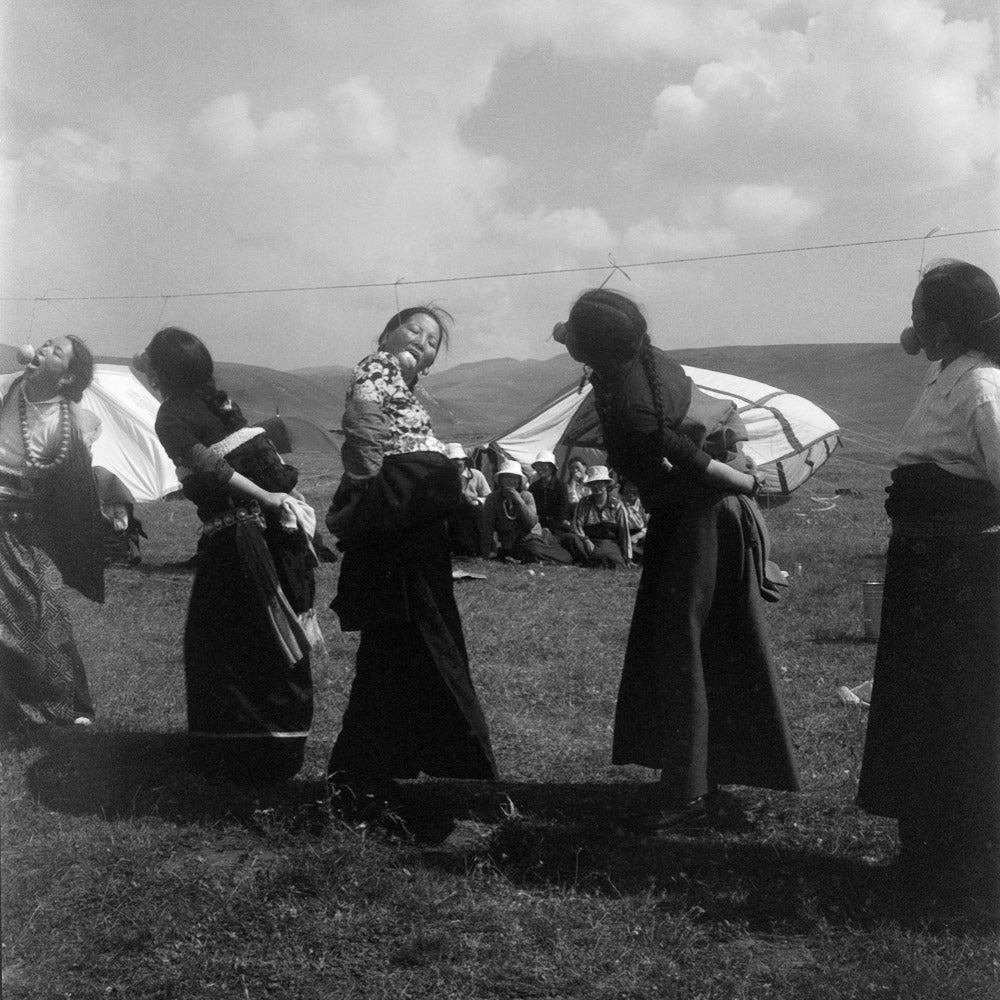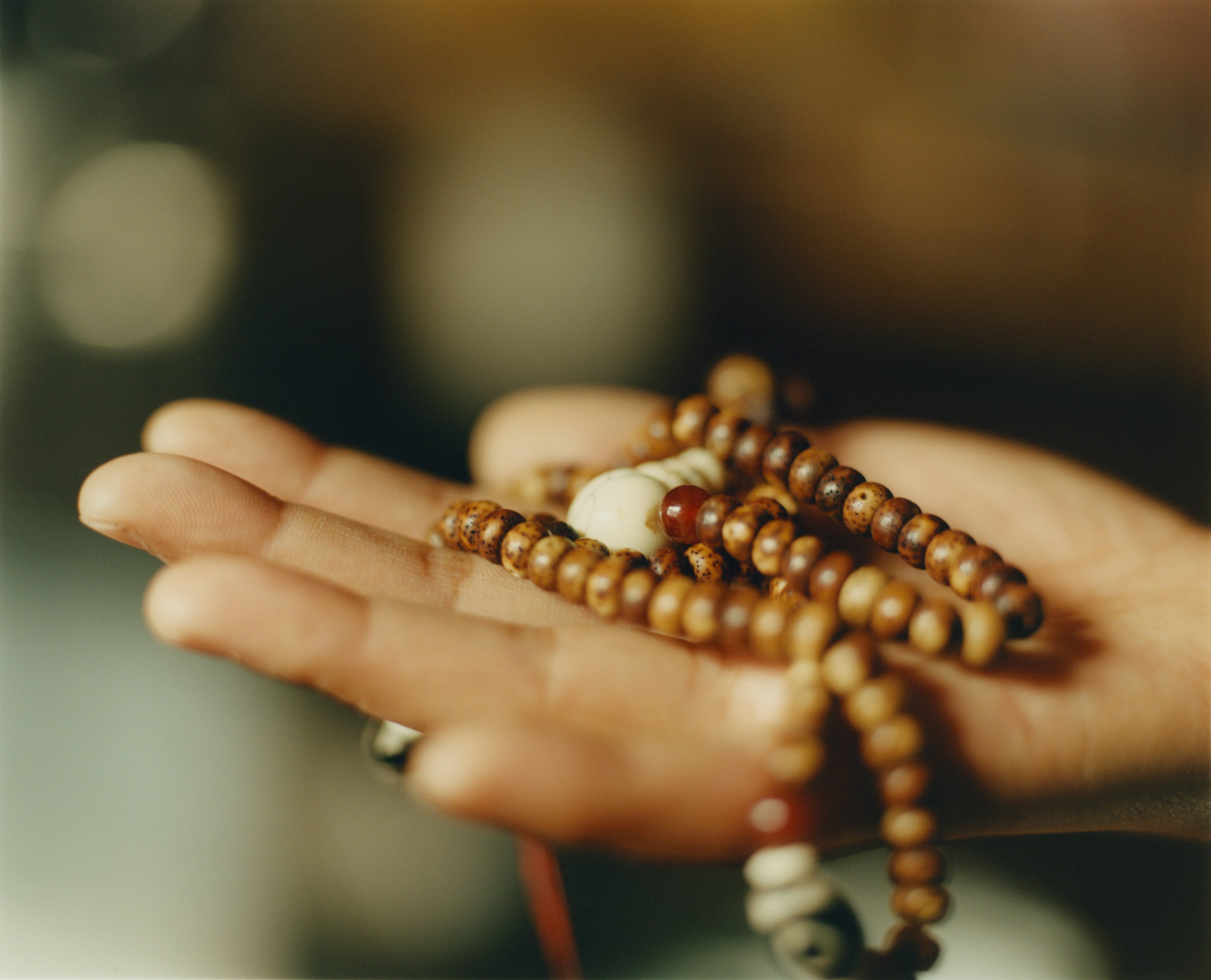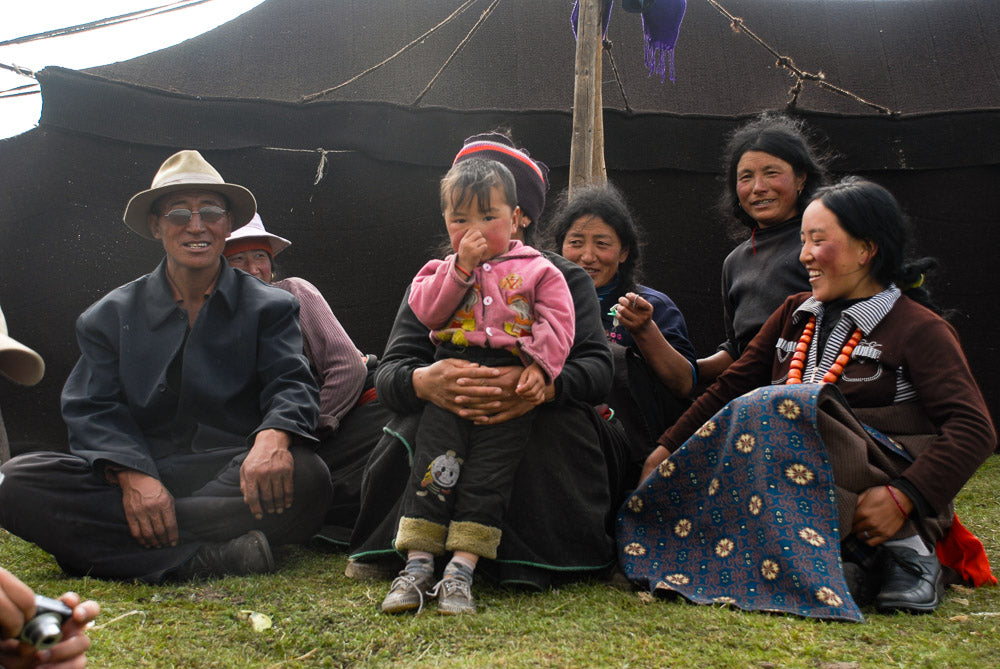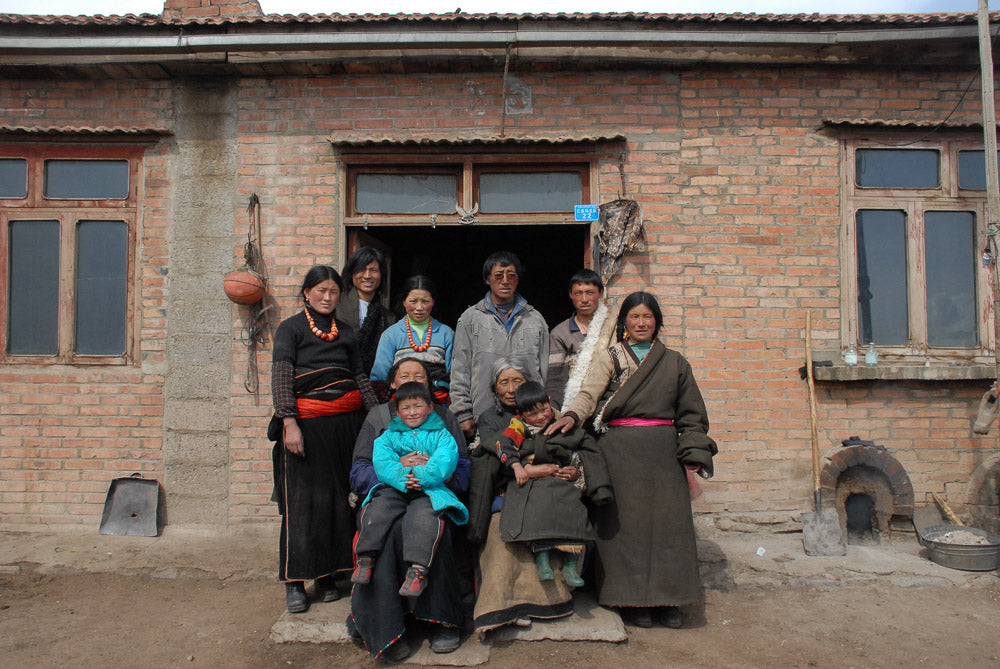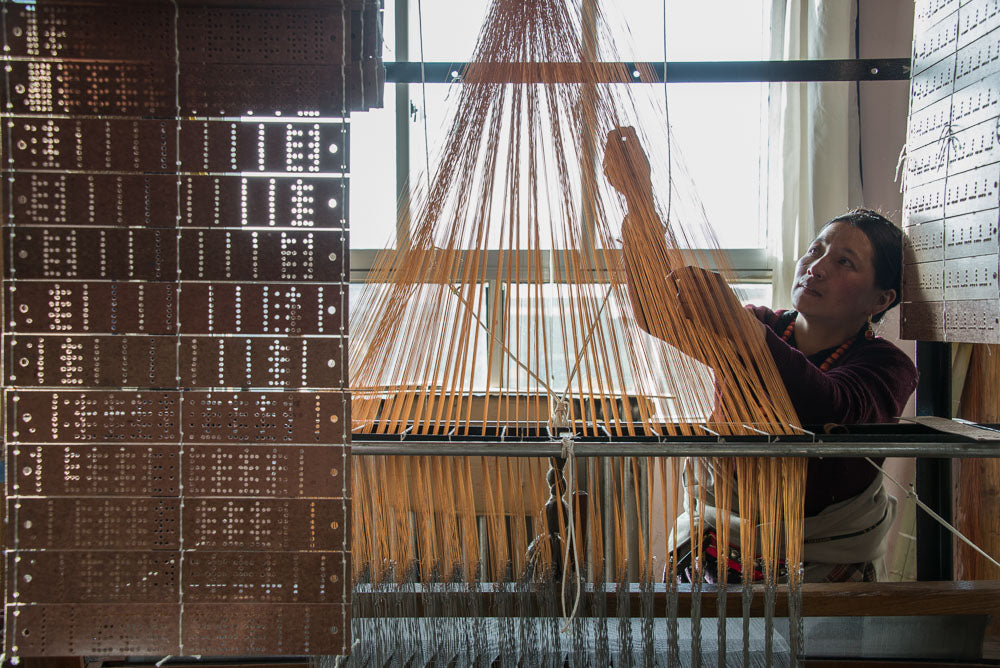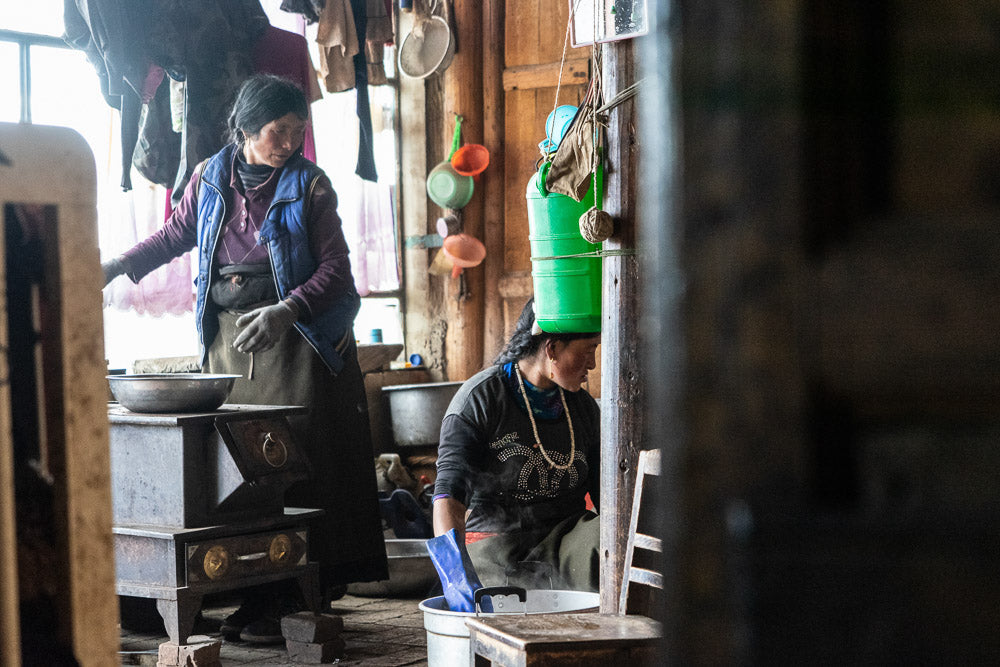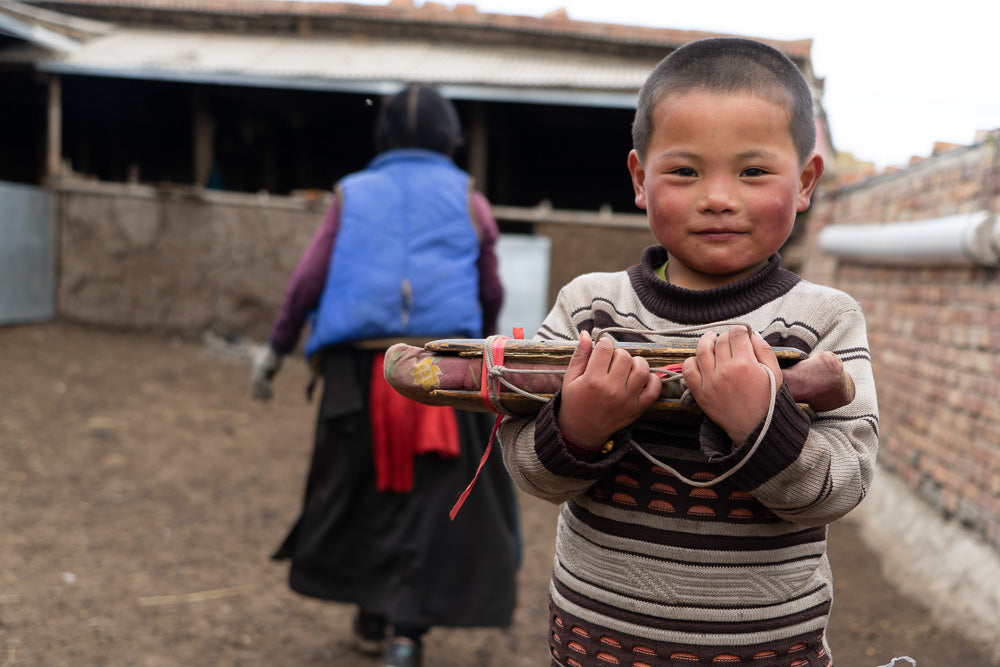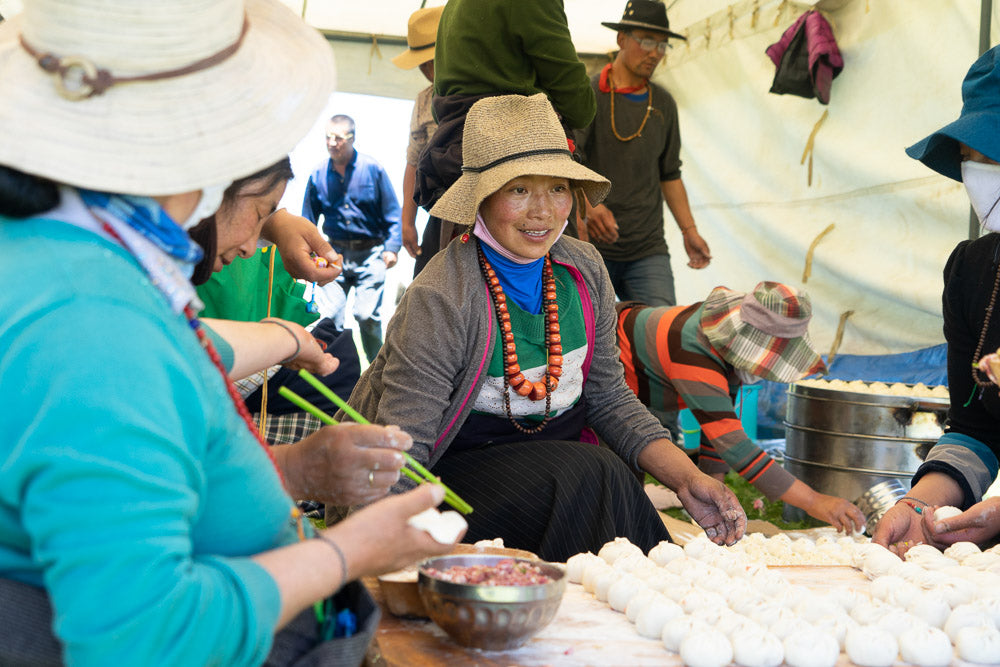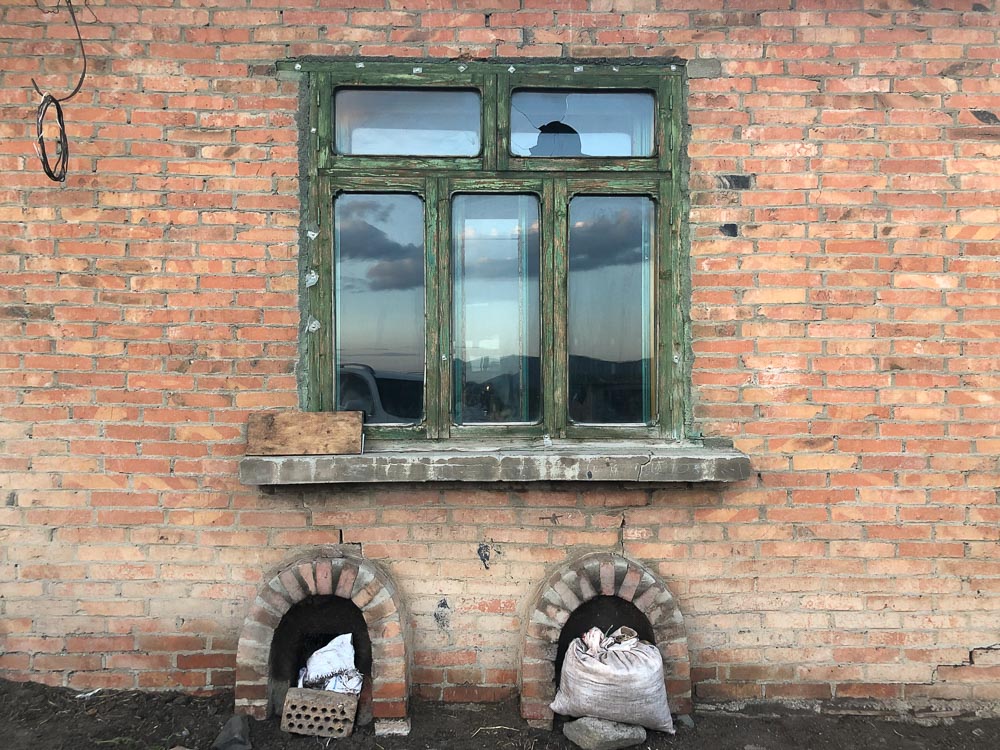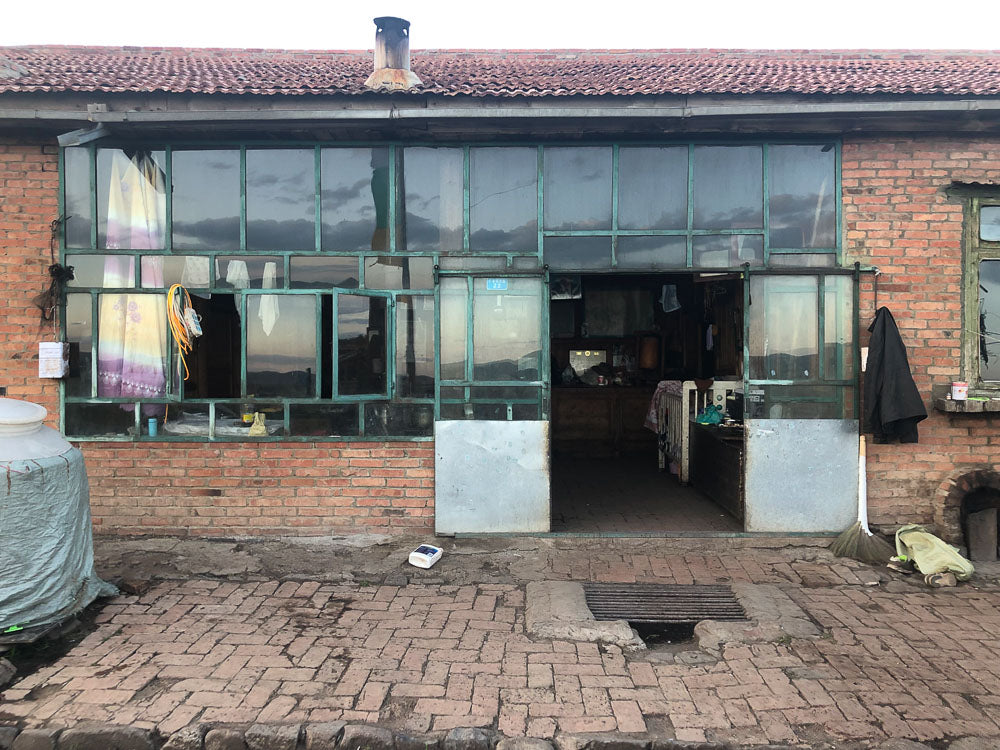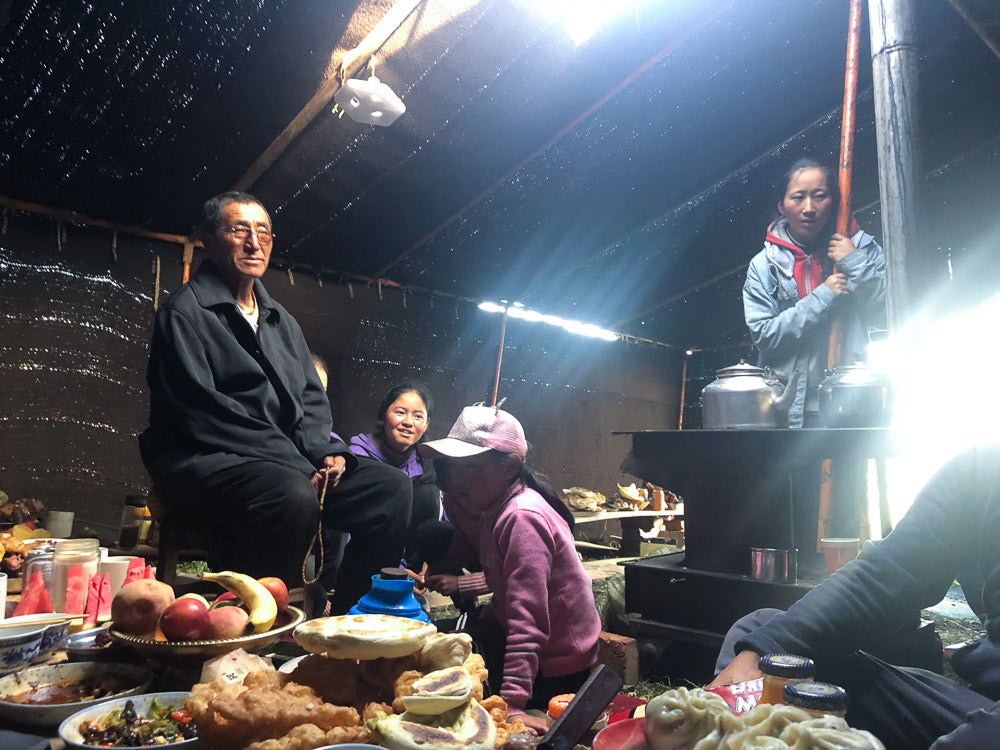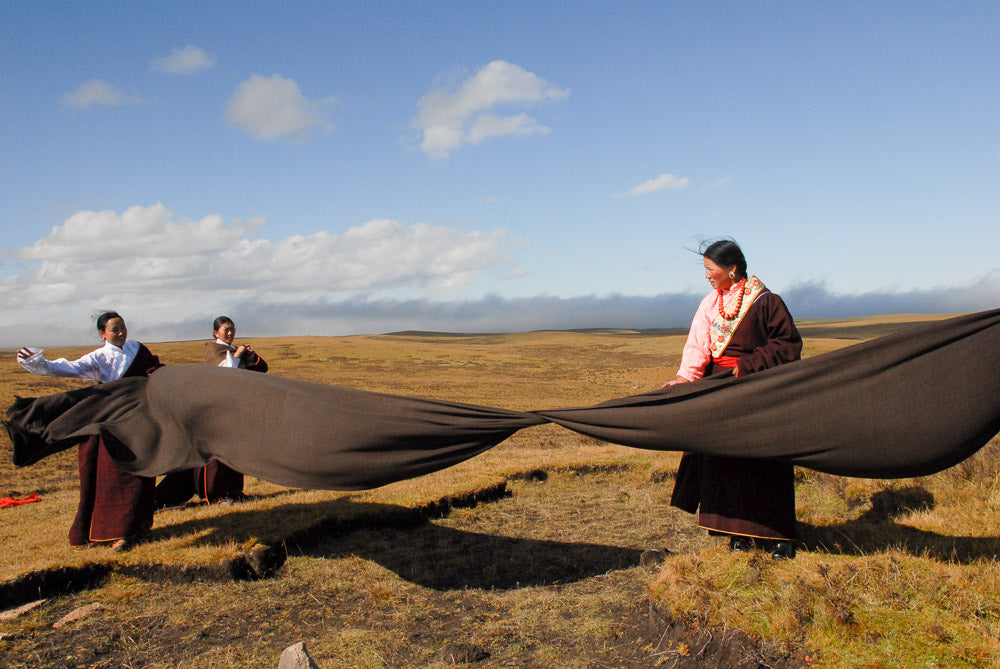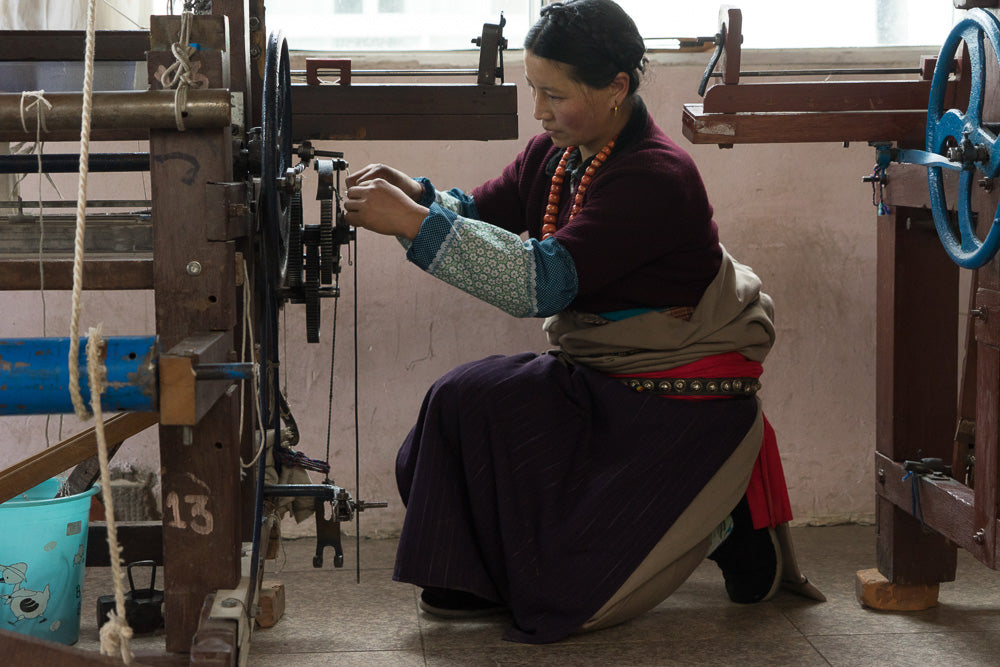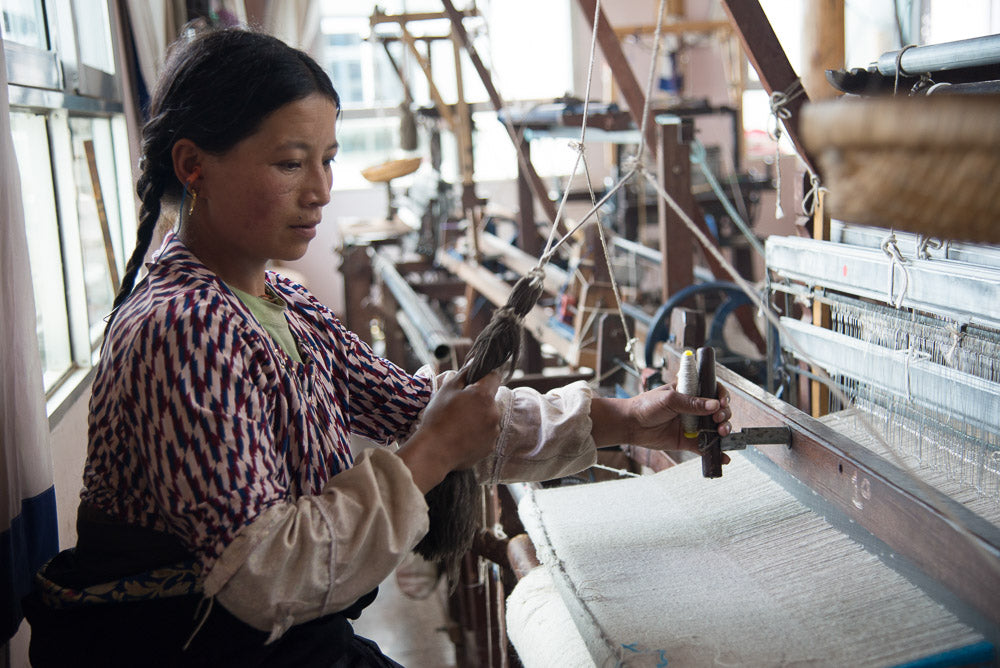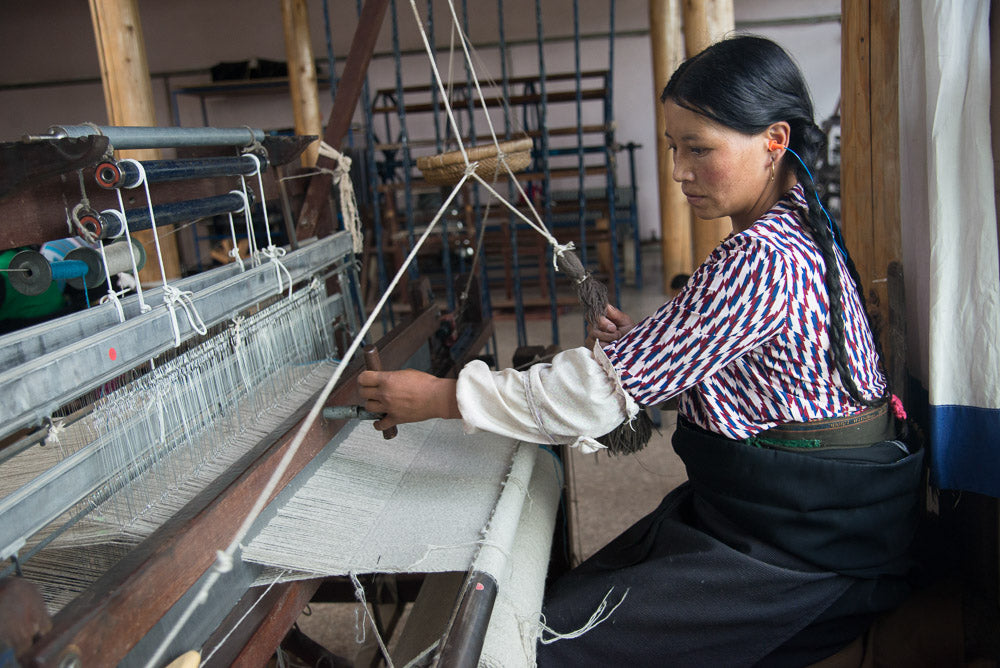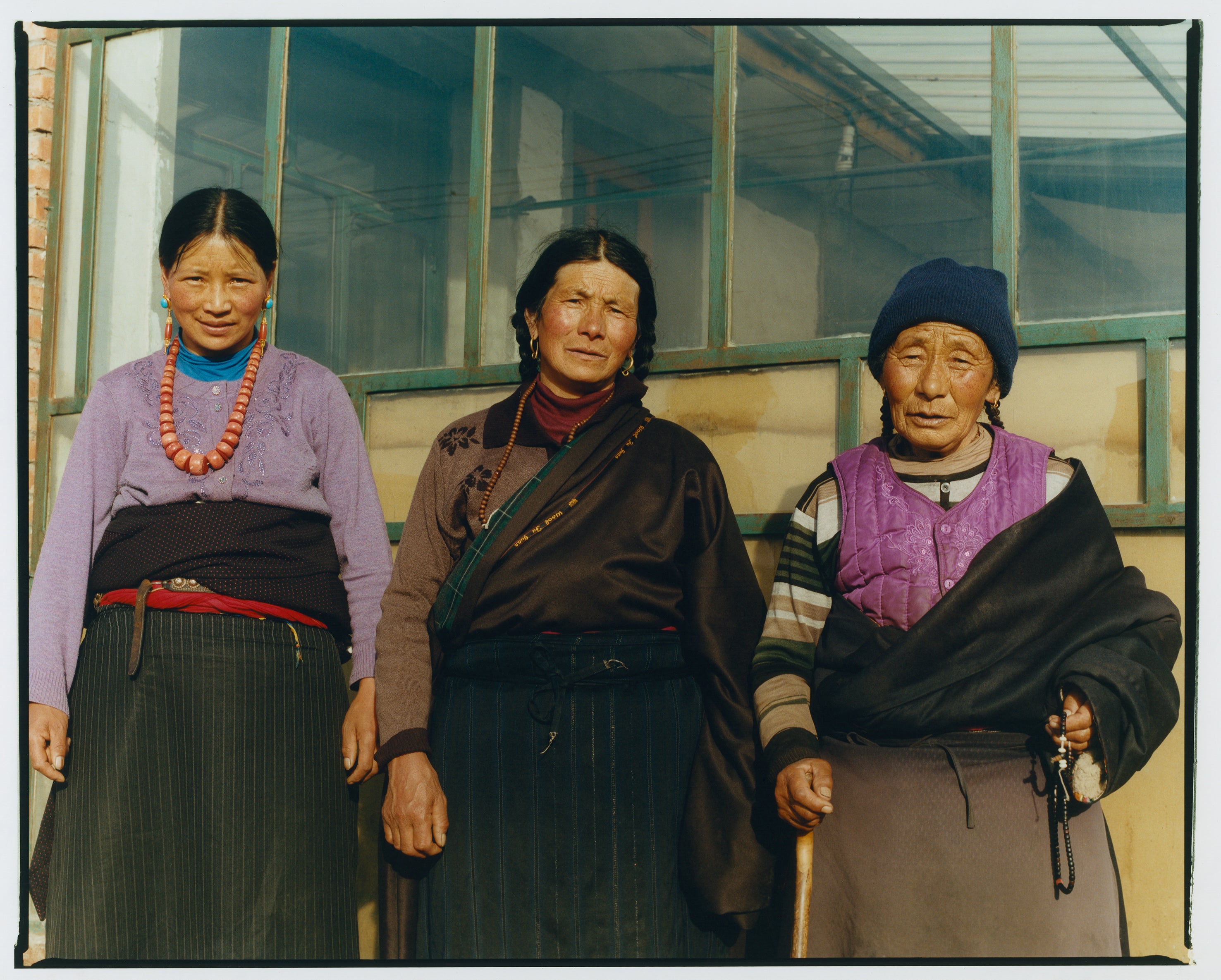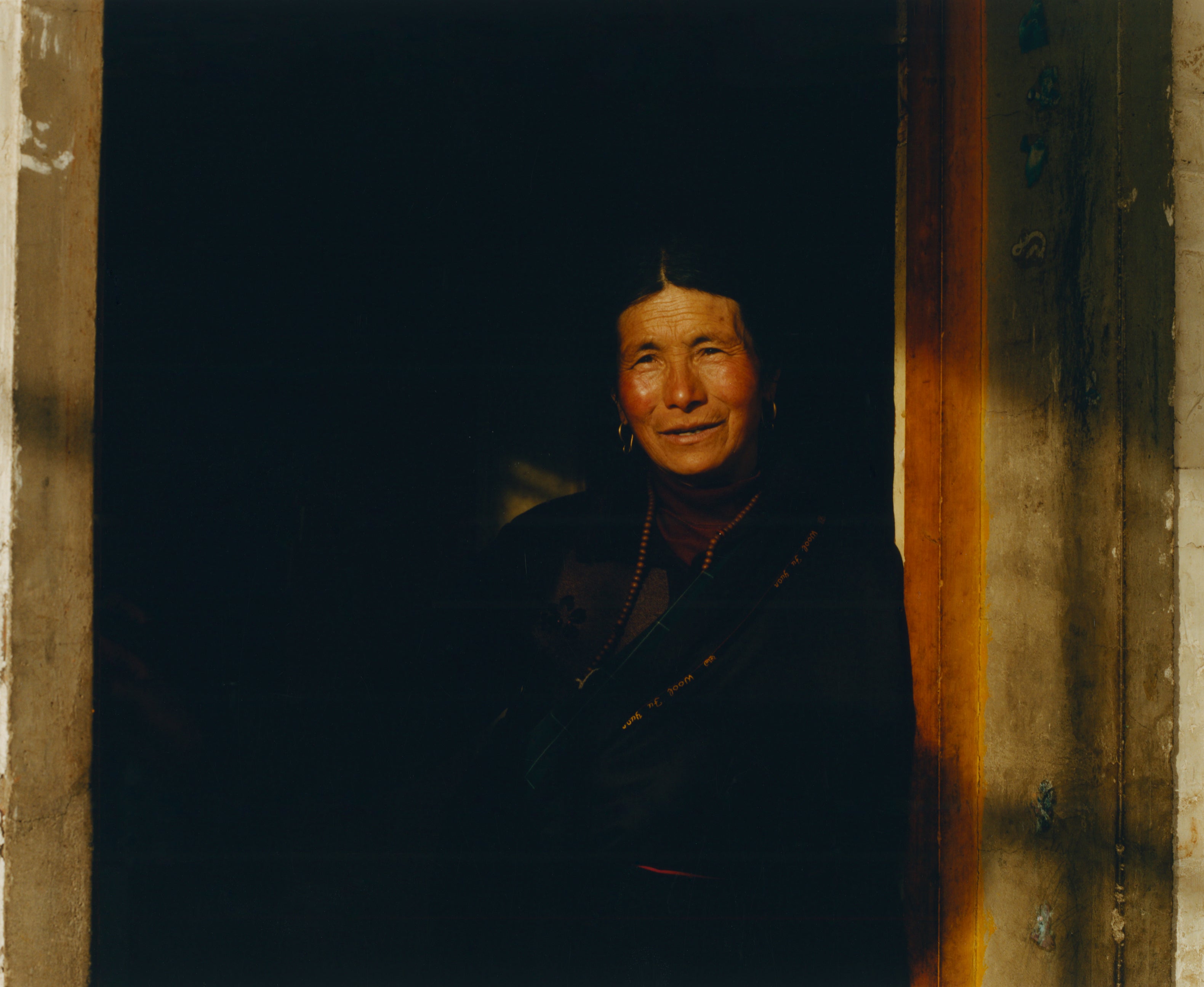WOMEN ON THE TIBETAN PLATEAU
|
Wandi Kyi is turning 35 this year. She and her elder brother never went to school. He was chosen to take over the herd and she learned the work of a nomad woman, assisting her mother in her daily tasks, destined to be married out into another nomad family. By age 10, she could cook and had mastered most of the tasks. She has fond memories of her childhood, and playing with lambs and baby yaks, making flower garlands the pasture as their playground. Her father had 10 siblings and she had a multitude of cousins. They would all gather for the summer laptse festival where they set up tents and enjoy the green pasture. Only when a family member died did they shun these pleasures to show their solidarity. Wandi Kyi’s younger brother went to school and would urge her to do the same, though she admitted she didn’t see the point and felt the pressure to remain as a nomad. She said that a woman’s life was hard. They rose each day at 4 am and collected the dung from 100 yaks with a shovel, which they threw into a basket strapped to their back, which quickly became very heavy, then added it to a pile and shaped it into patties left to dry in the sun. This took several hours and would be followed by the milking of dris, and the separating of milk into butter and cheese. The life of a nomad is closely connected to the surrounding nature and environment. As Buddhists, they were taught to respect life, and the spirits in the grasslands, and told by their elders not to muddy the stream water and refrain from playing at catching frogs and fish. This would upset the Nagas, or snake spirits and cause illness, acknowledging that harmony with nature is earned by showing respect and moderation. Wandi Kyi’s father could not bring himself to sending his only daughter out to be married. While the eldest son inherits the family herd, the daughters, married into other families end up on the lower notches of the social order. In 2007, Dechen came to Ritoma and established the Norlha workshop. Wandi Kyi’s father managed to secure his daughter one of ten openings initially offered, so she could earn a living and have more control of her life. Two years later, her parents arranged her marriage to another employee and now they have three children and their own house located near the workshop. Because her and her husband both work, they sent their children to their parents home in the pasture 10 km away where their lived with her brother’s children until they went to school. On the weekends, they would go there and help with the chores. At Norlha, Wandi Kyi began as a spinner, then trained to be a weaver. She said it was difficult at first as she couldn’t read and write, but she overcame the hurdles, and with some very basic arithmetic could master the techniques. She said she enjoys a challenge and likes to do things thoroughly. Two years ago, she learned jacquard weaving and today, she is one of Norlha’s more proficient weavers. More than 100 of Ritoma’s 280 households have members working at Norlha. Women who are divorced or unmarried, or members of families who have sold off their herds, would have to migrate to other parts to find work. One of Wandi Kyi’s cousins told her of his experience going to work in mines in Inner Mongolia where work was dangerous, pay low and water scarce, adding that before Norlha, there were few other means for a nomad with no animals, education and any other skill to provide for his family. To Wandi Kyi and other women in her village, Buddhism is an essential part of being Tibetan, a practice to be integrated into one’s life. Wandi Kyi’s parents and grandparents taught her that beauty is relative and that inner beauty, or kindness of heart, is more essential. Bettering oneself can be cultivated by avoiding the ten forms of misconduct and clearing negative karma through prostrations and reciting the six syllable mantra, Om Mani Padme Hung. This mantra can be recited while walking or working. She said that she draws great comfort from being in a sheltered workroom, with all the women around her reciting the mantra to the regular gestures that send the shuttle back and forth, and the pedal movements that create the design. The prayer beads the workers wrap around their wrists or around their neck help count the mantras, and she said they feel they are precious, not as objects but because of their connection with the mantras. During the holy month of Saga Dawa, with other women in the workshop, they set goals of up to 500 prostrations and hundreds of thousands of mantras, performed during their lunch break and before and after work. She feels that these are the most important moments in her life, ones that bring her much happiness. Working at Norlha, Wandi Kyi feels she is in an ideal place between the traditional and the contemporary. Work is based on familiar traditions, ones they used to make tents and weave wool and using yak khullu makes her feel connected to the pasture and gives her a sentiment of warmth and comfort. Before Norlha, they had the materials, but not the knowhow to transform it into high value added pieces. Wandi Kyi says that yak khullu changed their lives for the better, bringing harmony to her new way of life. |

